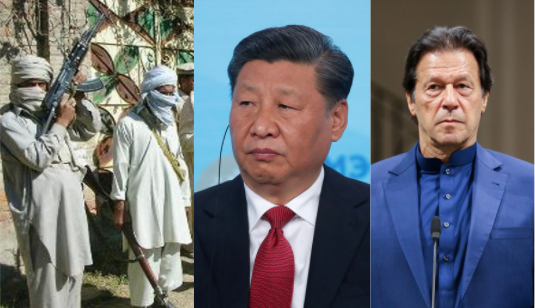Over the past few years, China and Xi Jinping have not hesitated to engage with the terrorists and even funded them, to serve their nefarious interests and expansionist policy. It seems that China will now finally realise its folly of trying to buy the loyalty of the terrorists as the reunification of Pakistan Taliban is set to further increase the problems of the much-maligned China Pakistan Economic Corridor (CPEC), which has been already mired in huge corruption scandals and the repeated attacks of the Baloch Liberation Army. All these factors have resulted in the gross inflation of the project cost and the reunification of the Pakistan Taliban might be the final nail in the coffin for CPEC which was supposed to be the hallmark of China’s Belt and Road Initiative.
Chinese concerns over the feasibility of the CPEC have further increased as Pakistan Taliban has reunified its various breakaway factions. The Pakistan Taliban is particularly strong in northwestern Pakistan and will most likely pose threats to Chinese projects.
“In Khyber Pakhtunkhwa province’s various remote areas, several Chinese development projects, mainly in the field of hydro-electricity generation and infrastructure, are going on. The Pakistan Taliban’s recent reunification has increased concerns about the safety of Chinese nationals and projects,” said an Islamabad-based security official told the Nikkei Asian Review who wished to remain anonymous.
The Pakistan Taliban, better known as Tehreek-e-Taliban Pakistan (TTP), had split in 2014 due to leadership quarrels. TTP has now managed to unite its three major factions: Jamaat-ul-Ahrar, the Hizb ul-Ahrar and Hakeemullah Mehsud group. The united TTP is also being joined by a faction of Lashkar-e-Jhangvi, a banned terror group operating in Balochistan province.
The TTP which was formed in 2007 is a strong ally of Al-Qaeda and has been involved in several terror attacks ever since its formation in 2007.
The recent developments are particularly concerning for China, as TTP’s reunification has put China in a tight spot, given the fact that the TTP is no friend of China. While the Imran Khan government maintains a stoic silence over China’s unprecedented atrocities on the Uighur Muslims, the TTP in the past have often issued detailed statements against China as the terror outfit and condemned the situation of the Uighur Muslims.
“The TTP often issues detailed statements against the China state, condemning the situation faced by Chinese Muslims in their own country. More importantly, targeting CPEC projects can create severe economic problems for the Pakistani state — destabilising it is the ultimate goal of TTP and its allied anti-state jihadists,” said Abdul Sayed, a Sweden-based researcher on jihadi groups in Pakistan and Afghanistan.
It is pertinent to note that the TTP has a personal grudge against China as at China’s behest, Pakistan in 2013 had banned three terror groups linked to al-Qaeda — the East Turkestan Islamic Movement, the Islamic Movement of Uzbekistan, and the Islamic Jihad Union. China was concerned that the groups had established their footing in Pakistan’s tribal areas with the TTP’s assistance.
Analysts claim that there are growing voices in Pakistan’s tribal belt which are encouraging the TTP to target Chinese projects as a revenge for the blatant Human Rights violations committed against the Uighur Muslims by the Chinese Communist Party.
In recent history, no project has likely faced as much barrier as the CPEC which keeps stumbling on from one blunder to another. It seems that China is all set to pay the price of being in bed with the terrorists.
